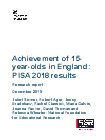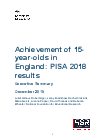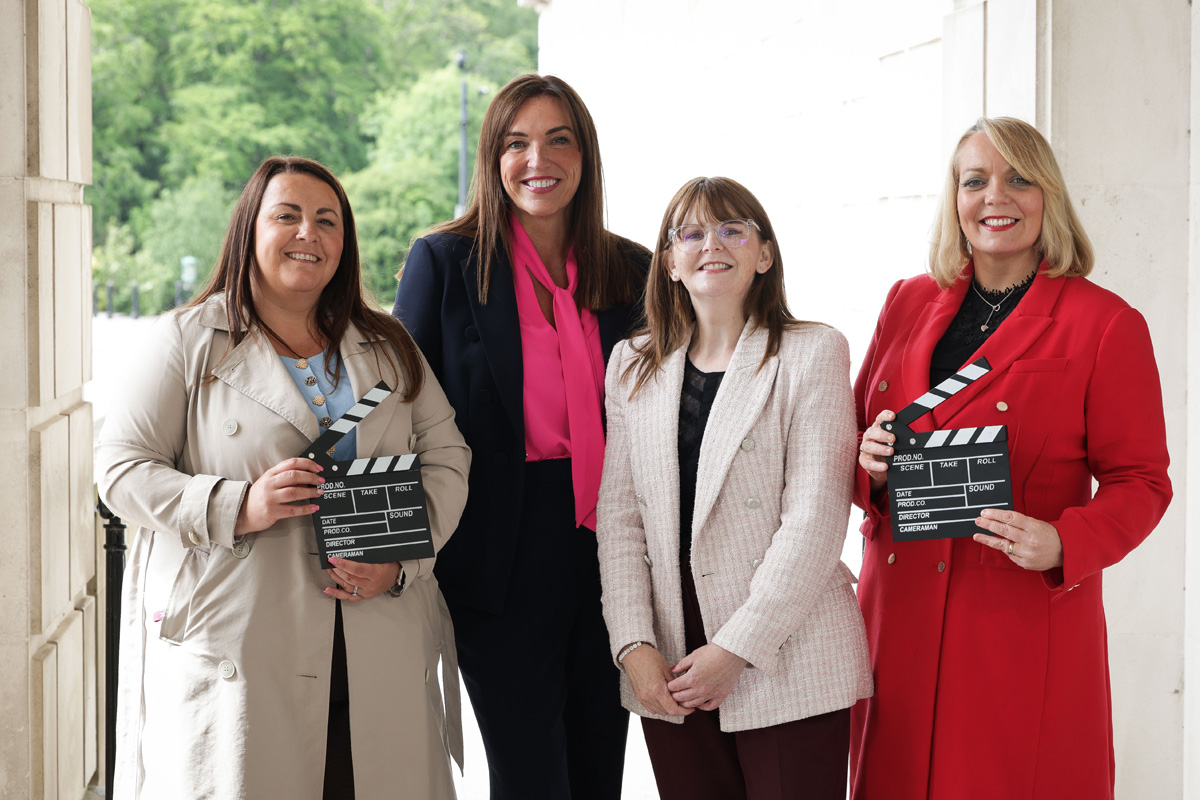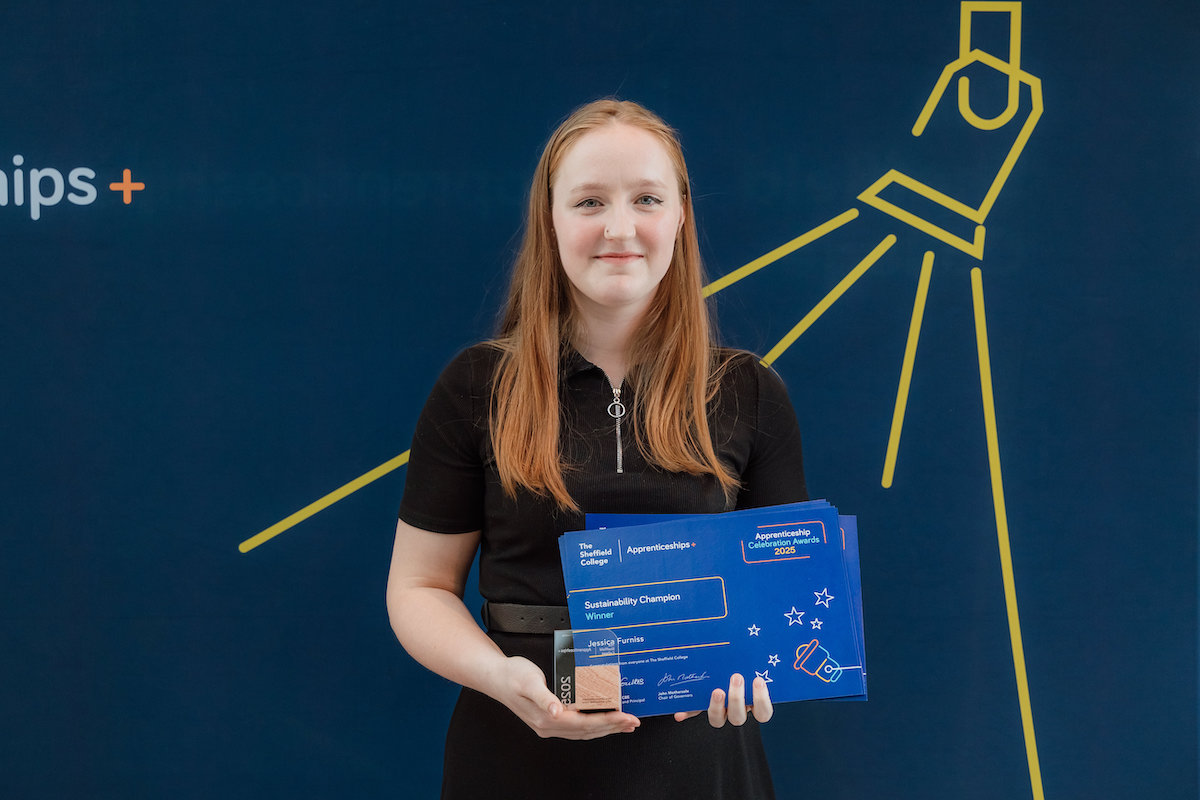Pisa 2018: We must strive to develop an education system that focuses on developing the whole child

England’s PISA 2018 results, with an international comparison of reading, maths and science performance of 15-year-old pupils.
Today (3 Dec), the 2018 UK results for the Programme for International Student Assessment (PISA) were announced. The 2018 PISA cycle was delivered in the UK by NFER on behalf of the Department for Education in England, the Scottish Government, the Welsh Government, and the Department of Education in Northern Ireland.
The triennial international study, which is developed jointly by member countries of the Organisation for Economic Co-operation and Development (OECD), assesses the knowledge and skills of 15-year-olds in reading, maths and science.
Focusing particularly this time on reading, the results provide a compelling snapshot of how well we are preparing young people across the globe for their future lives.
So how well has the UK done?
- The PISA results show that England now outperforms the average across OECD countries in all three subjects that are assessed – reading, science and maths.
- For the first time, pupils in Wales’ performance is similar to the OECD average in reading, mathematics and science.
- In mathematics, both England and Wales show an improving trend across successive PISA cycles, while Scotland has declined, and Northern Ireland has remained broadly stable.
- Since 2015, Scotland has significantly improved in reading, while England, Wales and Northern Ireland have remained stable.
- In science there has been a decline in performance over successive cycles of PISA since 2006 in Scotland, Wales and Northern Ireland, while England has remained stable.
The Programme for International Student Assessment (PISA) is a study of educational achievement organised by the Organisation for Economic Co-operation and Development (OECD).
PISA is conducted every 3 years, and assesses the abilities of pupils aged 15 in reading, mathematics and science. Pupils are assessed on their competence to address real-life challenges, and each round of PISA focuses on one of the three main areas – reading in 2018.
PISA enables governments to benchmark education policy and performance, to make evidence-based decisions and to learn from one another. It is also of great value to academic and research communities and to participating schools. Nearly 80 countries participated in PISA 2018, including all members of the OECD and all 4 countries within the United Kingdom.
In England, PISA 2018 was conducted from October 2018 to January 2019, with a sample of 5,174 15-year-old pupils in 170 schools. Key insights from PISA 2018 for the United Kingdom A Welsh version of the briefing is available too.
Highlights
In PISA 2018, mean scores in England were significantly above the OECD averages in all 3 subjects.
The mean scores in reading and science in England have not changed significantly over successive PISA cycles, but in mathematics, England’s overall mean score showed a statistically significant increase compared with PISA 2015.
As with previous cycles of PISA, the highest-performing countries were east Asian, with Singapore, Macao (China) and the combined regions of Beijing, Shanghai, Jiangsu and Zhejiang in China (B-S-J-Z (China)) dominating the top positions in all 3 subject areas.
England’s mean score for reading was similar to scores for Scotland and Northern Ireland, and all 3 had scores significantly higher than Wales. In both science and mathematics, the mean scores for England were significantly higher than the scores for Wales, Scotland and Northern Ireland, which were not significantly different from each other.
 Kevin Courtney, Joint General Secretary of the National Education Union, said:
Kevin Courtney, Joint General Secretary of the National Education Union, said:
“The findings from Pisa 2018 of the performance of 15-year-olds in English, maths and science reflect an education system before the market reforms introduced by former Education Secretary Michael Gove and pursued by subsequent Secretaries of State. We will have to wait for the next round of Pisa tests taken in 2021, with the results published the following year, before a verdict can be given on the Conservative’s management of the English education system.
“Students in the UK should be congratulated on their performance in English, maths and science which reflect their hard work and that of their educators.
““However, the finding that globally fewer than 1 in 10 students were able to distinguish between fact and opinion is extremely worrying in an era of fake news. The finding that students read less for leisure and read fewer books of fiction, magazines or newspapers because they want to – as opposed to because they have to – is also deeply concerning. England’s teachers must be given the professional autonomy to ensure that our pupils can read for pleasure within school time on a daily basis so that it becomes a habit for life. As the OECD points out, reading is no longer mainly about extracting information; it is about constructing knowledge, thinking critically and making well-founded judgements. We need to ensure that our education system focuses on developing these skills in our young people, not simply on cramming them with facts.
“It is noteworthy that the top performing countries in Pisa 2018 have been told by the OECD that they have a long way to go in improving students’ social and emotional outcomes, and other aspects of students’ well-being that were measured by PISA 2018. International surveys have shown that young people in England are among the least happy in the world and we must strive to develop an education system that focuses on developing the whole child and inculcating a love of learning for life.
“Finally, Pisa 2018, like all other rounds of this international survey, provides a snapshot of the performance of education systems. Each time the survey is conducted, a larger number of countries take part and therefore the global rankings do not compare like with like. In addition, each Pisa series focuses on a different learning domain – In 2018 it is reading, in 2015 it was science. The ‘league table’ element of Pisa should therefore be treated with enormous caution since the rankings are comparing different subjects among a different number of countries. The OECD also point out that many of the changes in countries’ scores (and therefore their apparent ranking) are not statistically significant. This includes two of the three scores given to the UK. “
 Responding to the publication of the 2018 PISA results, which show that Wales was the only part of the UK to increase its performance in all three subjects (reading, science and maths), Liberal Democrat Shadow Education Secretary Layla Moran said:
Responding to the publication of the 2018 PISA results, which show that Wales was the only part of the UK to increase its performance in all three subjects (reading, science and maths), Liberal Democrat Shadow Education Secretary Layla Moran said:
“Today’s results show the difference that Liberal Democrats can make to children’s futures. Under Liberal Democrat Education Minister Kirsty Williams, Wales has shot up the rankings, achieving its best ever results in reading and maths.
“Her formula is simple: invest in teachers – the real heroes of today’s study. It’s time for England to follow suit. Liberal Democrats will spend an extra £10 billion on schools and employ 20,000 more teachers, giving them the pay, support and training they need to give every child the best start in life.”
Documents

PISA 2018: national report for England
Ref: ISBN 978-1-83870-075-1, DFE-RR961PDF, 8.79MB, 246 pages

PISA 2018: executive summary
Ref: ISBN 978-1-83870-075-1, DFE-RR961PDF, 349KB, 7 pages
PISA 2018: national report for England – chapter data tables
ODS, 2.51MB
This file is in an OpenDocument format
PISA 2018: national report for England – appendix data tables
ODS, 223KB
This file is in an OpenDocument format
Details
The Programme for International Student Assessment (PISA) is a survey of the educational performance of 15-year-old pupils organised by the Organisation for Economic Co-operation and Development (OECD).
The report provides analysis of the PISA 2018 findings for England and compares England’s performance to almost 80 other countries.











Responses